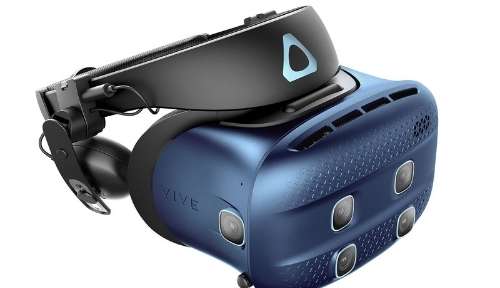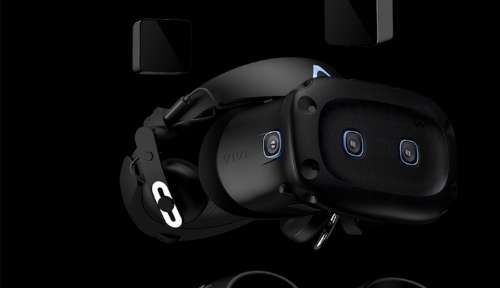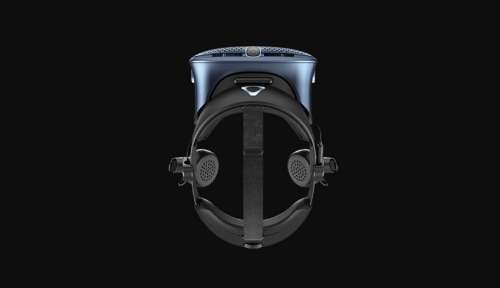Love it or hate it, Zynga has been one of the companies to best crack the code of mainstream gaming appeal. Milking millions from mobile players with addictive virtual skinner boxes such as Farmville.
VR hasn’t yet reached the level of mass appeal smartphones have, but it seems two ex-Zynga staffers think it’s not too far in the future.
Marcus Segal and Mike Pagano Doom (what a name!) have revealed their new company ForeVR, which has secured $1.5 million in funding and plan to kick things off with a VR bowling game.
Cheap VR and a Socially Distant World
In the original story reported by Venturebeat, Segal indicated that the $300 price point of the Quest 2 and an increased need for at-home immersive entertainment.
In other words, with good VR headsets reaching similar prices to cheaper smartphones, the folks at ForeVR see an opportunity for VR games with mass appeal.
Specifically, sports games that are intuitive and don’t require any knowledge or experience of video games. This is exactly the same model that made the original Nintendo Wii such a hit.
Games such as Wii Bowling were easy to understand for non-gamers and that’s why just about everyone from every walk of life had a Wii next to their TV.
Social Bowling in VR
Bowling is mainly a social sport and when Wii Bowling became a smash hit it was largely because a group of friends could gather in front of the TV and then play together.
That’s something ForeVR wants to recreate, and those plans include sharing a headset or playing with other players online. They’ve also mentioned the idea of streaming the game to a TV where those who aren’t currently playing can see what’s going on in the game.
It seems like a solid idea in practice, although sharing a VR headset on a hot seat basis is much less convenient than sharing a Wiimote. Not to mention less hygienic!
How Much Zynga Do You Want?
ForeVR’s founders cite their extensive experience of “accessible” games from their Zynga days, but there are some lessons from the Zynga playbook that would perhaps be better left there.
ForeVR Bowling will launch early in 2021, which is pretty quick given that we didn’t even know that this startup existed a few weeks ago. So at that point, we’ll probably have a better idea of what ForeVR has in mind for their wave of mass-appeal games.
Doom’s background is something worth mentioning. He was the general manager of the casino group at Zynga according to the VentureBeat article. He was also the founder of Electronic Art’s first free-to-play game development studio.
ForeVR clearly sees the right numbers to think that VR is about to push the sorts of numbers that make their type of content viable. In general, that’s great news for the growth of the VR market. It does, however pose a potential issue for curatorship of good content.
The Shovelware Dilemma
I have no idea if ForeVR Bowling is going to be a good Oculus Quest game. Although you can be sure, we’ll give it a go when it releases next year and get back to you!
For now, let’s assume ForeVR is going to bring a great bowling game to Oculus that anyone can play and enjoy. That’s fine, but what about the market signals that lured them into the VR business in the first place?
You can’t bring up the mass-appeal of the Nintendo Wii without mentioning the dark flipside of the coin, The Wii’s library is quite possibly the most tainted shovelware-filled collection of games ever seen.
The huge install base and popular control gimmick lead to hundreds of awful games trying to cash in on an audience that didn’t know any better.
We’ve also seen something similar with smartphone VR.
Just take a look at the long list of Google Cardboard shovelware applications. Anyone whose first experience of VR happens to be one of those titles could be forgiven for giving the entire medium a skip.
Expanding the Oculus Store
One of the best things about Oculus (and also the worst) is it’s Apple-like walled garden. The Oculus Store. It’s pretty well-curated for the most part. OK, it’s not nearly as tight as Apple’s devices.
After all, you can sideload anything you want onto the system. However, mainstream users are not bombarded by a large number of low-quality applications.
Things are changing however. Oculus in particular will be bringing off-store apps to Quest in the first quarter of 2021. These apps will not show on the Quest Store, but anyone can share a link with their app and the Quest will install it, adding it to your library. This will effectively make SideQuest sideloading obsolete in its current form.
Main store applications will still have to go through the laborious process of pitching games to Oculus early in development to get the green light.
Assuming you can live without the Oculus store infrastructure and promotion, you no longer need to do that.
A New Wave of VR Software
While I’m sure that ForeVR Bowling is going to be just fine, we might be looking at a wave of VR software that won’t benefit from the high levels of curation we’ve seen in the past.
That’s not automatically a bad thing, but it does mean that the job of community curation (such as on Steam) and VR-focused publications are about to get much more important.







